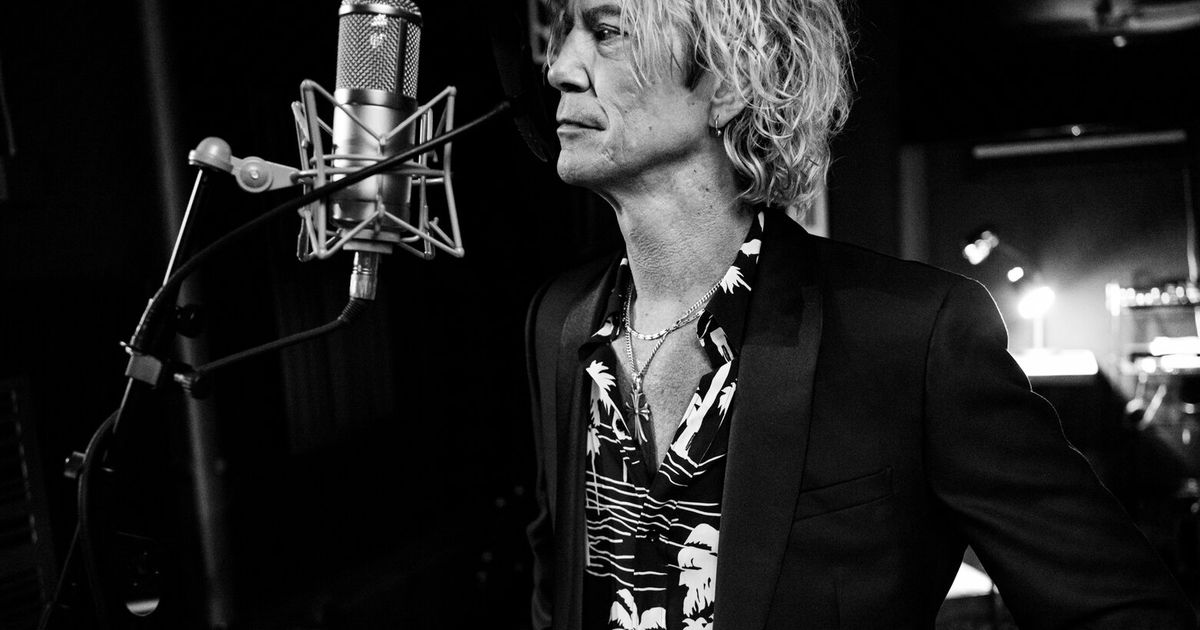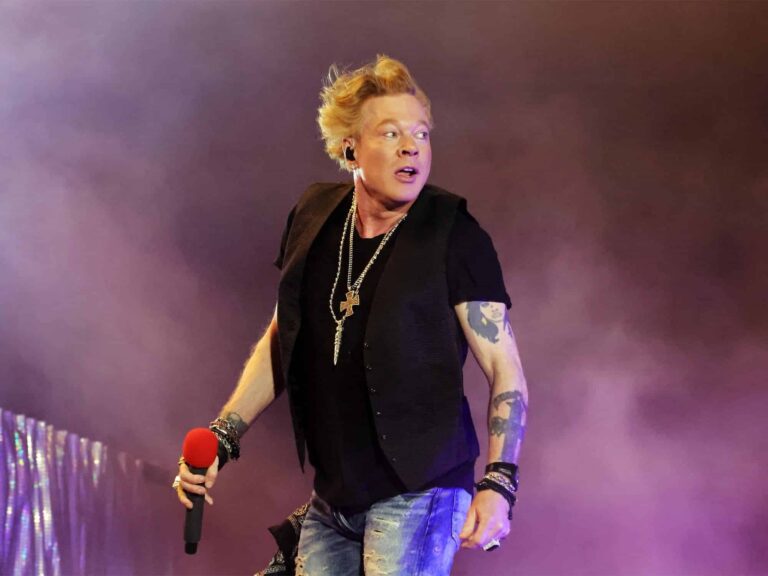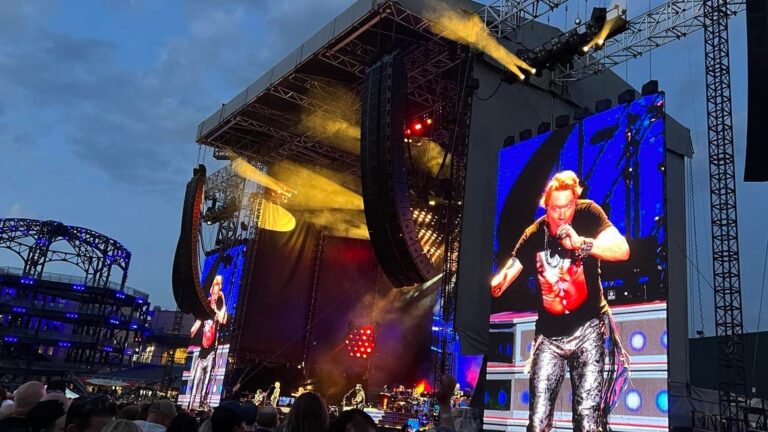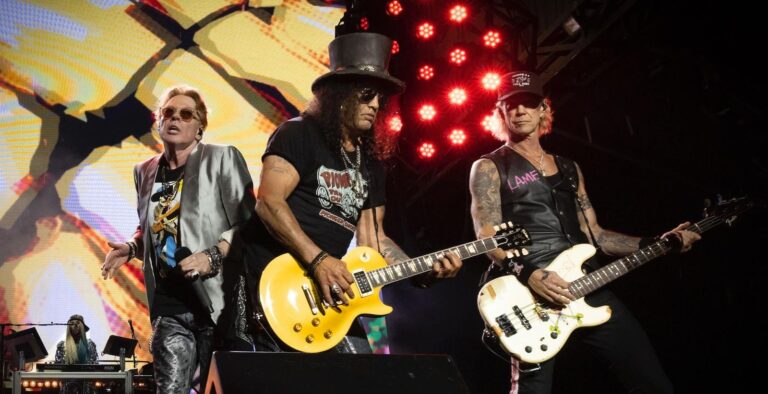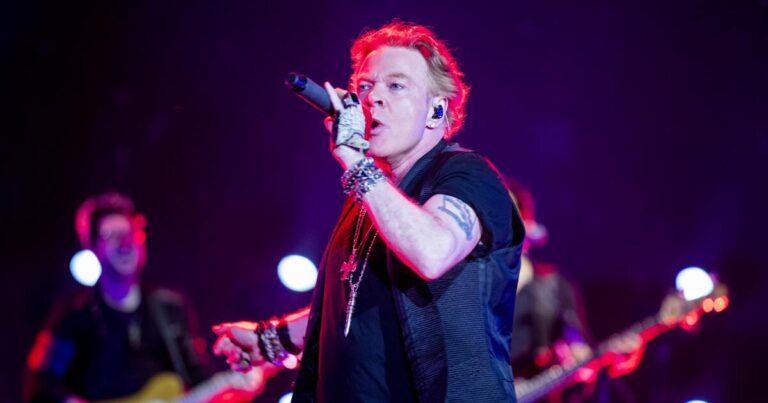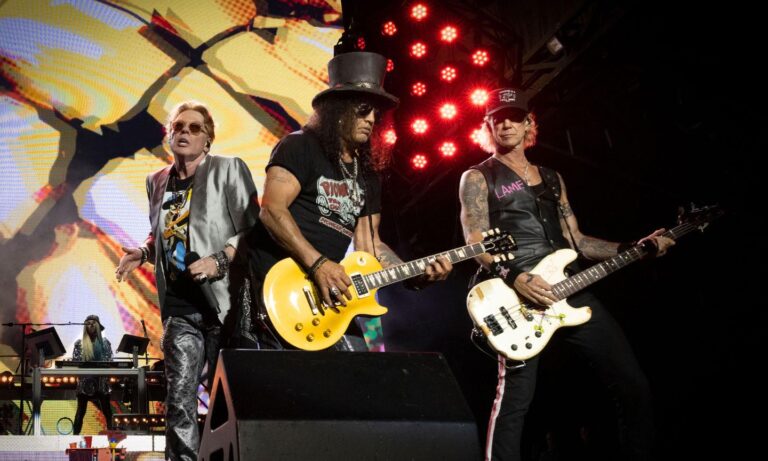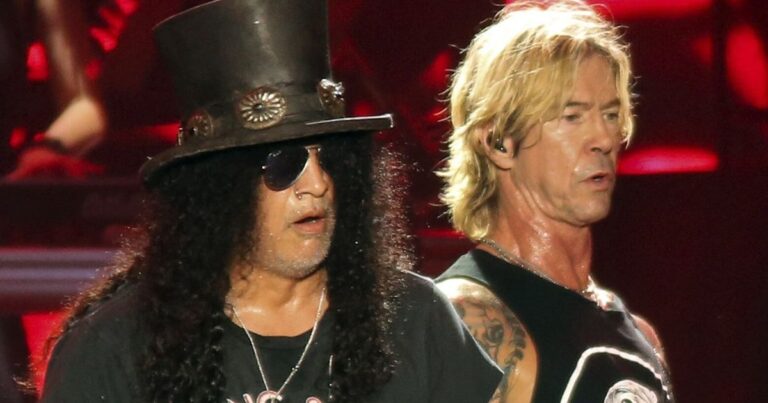Rock Legend Duff McKagan Spills the Beans on Guns N’ Roses Tour and Jaw-Dropping Solo Album ‘Lighthouse’
Duff McKagan has had a whirlwind of a few years. The Seattle punk rocker turned stadium-slaying bassist is returning to his hometown for a show at Climate Pledge Arena with Guns N’ Roses on Oct. 14. Following this, a week later, McKagan is set to release his third solo album, titled “Lighthouse,” which features a collection of topical and personal new tunes that showcase his singer-songwriter chops in the wake of 2019’s Americana-flavored “Tenderness.”
In the midst of it all, two mysterious figures bearing a striking resemblance to McKagan and his Fastbacks buddy Kurt Bloch dropped an album as Max Creeps, a duo with a fake backstory claiming to be the Seattle band that invented punk rock. McKagan has been crisscrossing the globe with Guns N’ Roses on their pandemic-delayed We’re F’N’ Back! Tour, the band’s second multi-year outing since reuniting with frontman Axl Rose and Slash in 2016.
McKagan found himself back in Seattle when the pandemic hit, where he had recently purchased an old recording studio. Expecting to be on the road within weeks, he started working on songs. However, as weeks turned into months and eventually two years, McKagan ended up recording close to 60 songs for “Lighthouse,” including the title track and the Jerry Cantrell-assisted “I Just Don’t Know.”
We caught up with McKagan to chat about his inspirations, Seattle collaborators, and a pivotal Clash concert that transformed his perspective on music. Read on for insights into his new album, the Seattle music scene, and his journey to sobriety.
Common threads in assembling the record
Assembling “Lighthouse,” McKagan noticed common threads among the songs he had written. Each piece started with a striking visual or phrase that served as the foundation for the storytelling within the lyrics. Drawing inspiration from authors like Cormac McCarthy, McKagan sought to convey complex emotions and themes with concise yet impactful lyrics.
One standout track, “Longfeather,” reflects McKagan’s journey to sobriety and his deep dive into martial arts and mediation. Reflecting on the saying “Today’s a good day to die,” McKagan shares the profound impact it had on his outlook on life and the importance of making amends and finding inner peace.
Recording with a small, Seattle-based cast
During isolated pandemic sessions, McKagan collaborated with a small, mostly Seattle-based group of musicians to bring “Lighthouse” to life. Notable contributors include Tim DiJulio on guitar, Ryan Burns on keyboards, and Shaina Shepherd on backing vocals. McKagan highlights the talent and versatility of Seattle musicians, emphasizing the collaborative nature of the recording process.
Shepherd, a close friend of McKagan’s, also lent her vocals to the EP “This Is the Song” earlier this year. Her participation in “Lighthouse” further cements the camaraderie and mutual respect among Seattle artists.
From a Seattle perspective
McKagan reflects on the rise of fellow Seattle artist Ayron Jones, whose career he has closely followed and supported. Watching Jones grow as an artist and witnessing his performances at local venues fueled McKagan’s admiration for his talent and authenticity. Jones, in McKagan’s eyes, embodies the essence of a truthful storyteller through his music, a quality that McKagan values in his own songwriting.
For McKagan, a life-changing moment occurred during a Clash concert in 1979 at the Paramount. The Clash’s raw energy, authenticity, and unity with the audience left a lasting impression on McKagan, shaping his approach to songwriting and his appreciation for artists who speak from the heart.
As McKagan prepares to unveil “Lighthouse” to the world, his journey as a musician, collaborator, and storyteller continues to evolve. Stay tuned for a collection of songs that delve deep into personal experiences, social commentary, and the rich musical tapestry of Seattle.

